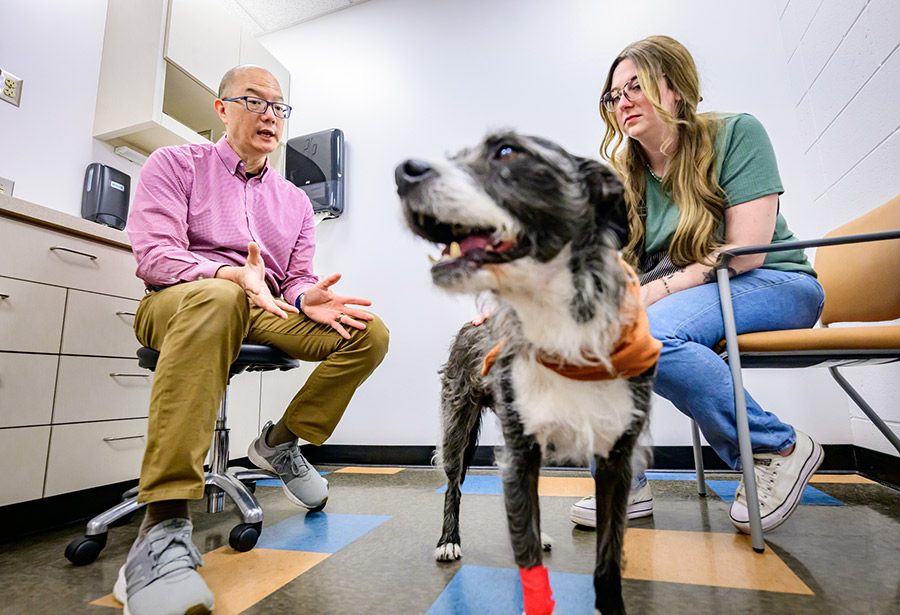Adorable? Yes.
Helpless? Orphaned? In need of human intervention? Probably not.
That’s the message Dr. Julia Whittington, medical director of the University of Illinois Wildlife Medical Clinic, is hoping to spread far and wide—and fast.
Once again this spring the Illinois clinic has been inundated with baby bunnies, so many that clinic volunteers are having trouble caring for them all. Calls to wildlife rehabilitation centers in the region in hopes of transferring healthy young rabbits elsewhere have been met with the same news: area rehabbers are full to capacity with baby bunnies too.
“The fact is that baby bunnies have a much better chance of survival if left alone,” says Dr. Whittington. “Despite our best efforts, human caregivers cannot provide the nutrition and care that the mother rabbits can give. Because of the way their digestive track matures as they wean, bunnies need mom to establish the right bacteria in their gut.”
However, when you find an animal that is obviously sick or injured—cold, dehydrated, bleeding—then please do bring in the animal so we can provide medical treatment.
Bunny Basics
There’s a good reason for the expression “breeding like rabbits.” Cottontails have litters of up to eight young every 28 days, with up to four litters per year. That’s a lot of baby bunnies.
The babies’ eyes open at about seven days old, and by three weeks of age the baby bunnies—now about four inches long—are weaned and on their own.
“Baby bunnies that are covered in fur and have their eyes open are old enough to fend for themselves,” says Dr. Whittington. “If you find a nest of baby bunnies in your yard and you are concerned that your dog or cat may attack them, try ringing the nest with some chicken wire with gaps small enough to keep pets out but big enough to let the mother rabbit in. I promise you, in less than two weeks those babies will be on their own.”
More Reasons to Leave Them Alone
- Are you worried because you have not seen a mother rabbit caring for the babies? Mothers only visit the nest twice a day, typically at night. Not seeing her does not mean she isn’t coming.
- If you have to chase the bunny to catch it, it does not need to be rescued. (This is also true of most other wild animals.)
- Lastly, cottontails may carry tularemia, an infectious bacterial disease that is transmissible to people. If you do find a bunny that needs medical attention, it is advisable to wear gloves and wash hands thoroughly after handling it.

![[four baby bunnies]](https://vetmed.illinois.edu/wp-content/uploads/2021/04/news-bunnies.jpg)


